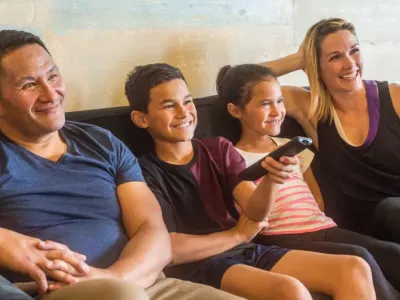The right kind of parent-child conversations can boost children’s confidence and school success

Want to improve your child’s school results? It can be easy to slip into the habit of frequently asking how their homework is going – which can be perceived as nagging. Instead, research indicates you should focus on conversations that let children express themselves, explore their interests and build their self-esteem.
In one recent study, the number of conversations between parents and children had no real effect on academic results …but the type of conversations really seemed to make a positive difference.
This study used data from 1815 eighth grade students in the USA (approximately 12 years old, and moving from middle school to high school). Researchers found that ‘high-quality’ communication can have a positive effect on school performance.
This type of communication involved parents listening to and respecting children’s points of view. Children were also involved in making decisions about school and life, and felt like parents understood their emotions. Parents also gave helpful feedback.
By encouraging children to express their ideas and feelings and have a say in school-related choices, parents and caregivers can help children at crucial stages of growth to believe in themselves and become more independent.
Listening and communication skills help children at school and in life
The research study above is just one example of how positive parenting helps children. When children and teenagers are able to enjoy a close relationship with parents, they feel comfortable expressing themselves and also listen to their parents’ feedback with genuine respect. Building opportunities for regular, pleasant supportive conversation with your kids and teenagers is just one way to encourage these skills and help children reach their full potential.

